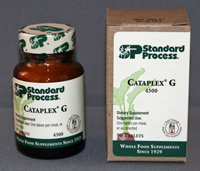
|
Changing Your Viewpoint Toward Sugary & Fatty FoodsSugar & Fat: The Foods You May Love, Don't Love YouAll calorie sources are not created equal. Carbohydrate and protein have about four calories per gram, but all fats, including oils like olive and canola oil, have more than twice that amount (nine calories per gram). Keep your intake of saturated fat, trans fat, and cholesterol as low as possible. All of these fats raise LDL (or "bad cholesterol"), which increases your risk for coronary heart disease. Foods high in saturated fats include high-fat dairy products (like cheese, whole milk, cream, butter, and regular ice cream), fatty fresh and processed meats, the skin and fat of poultry, lard, palm oil, and coconut oil. Trans fat can often be found in processed foods made with partially hydrogenated vegetable oils such as vegetable shortenings, some margarines (for example, stick margarines that are hard), crackers, cookies, candies, snack foods, fried foods and baked goods. If you drink alcoholic beverages, do so in moderation (no more than one drink a day for women, and no more than two drinks a day for men). Alcoholic beverages supply calories but few nutrients. A 12-ounce regular beer contains about 150 calories, a 5-ounce glass of wine about 100 calories, and 1.5 ounces of 80-proof distilled spirits about 100 calories. Limit your use of beverages and foods that are high in added sugars--those added to foods in processing or preparation, not the naturally occurring sugars in foods such as fruit or milk. Foods high in added sugars provide calories, but may have few of the other beneficial nutrients, such as fiber, vitamins, and minerals, that your body needs. A food high in added sugars will list a sugar as the first or second ingredient on the ingredient list. Some examples of added sugars are corn syrup, high fructose corn syrup, maltose, dextrose, honey, fruit juice concentrates, and maple syrup. In the United States, foods high in added sugars include non-diet soft drinks, sweetened beverages, including teas, fruit drinks, and fruitades, sweets and candies, and cakes and cookies. Next: Serving Up Good Nutrition with the Food Label Previous: From Junk Food to Whole Food Adapted from: Losing Weight: Start By Counting Calories
|
|
||||||||||||||||||
|


